Faithful son of Russia. Andrey Evgenievich Snesarev
V. G. Belinsky
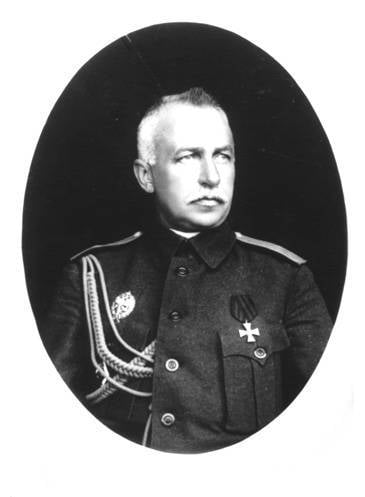 Andrei Evgenievich Snesarev was born 13 December 1865 of the year in the village of Staraya Kalitva, located in the Voronezh province, in a friendly and large family of a local priest. One of the ancestors of Snesarev was the famous Russian enlightener and church historian Evfimy Bolkhovitinov. The family of Yevgeny Petrovich and Yekaterina Ivanovna Snesarev had seven children, but four died at an early age. In 1872, Father Eugene and his family moved to the village of Kamyshevskaya. Here, in addition to his other duties, he worked as a teacher in a local parish school, which his eldest son, Andrei, soon began to attend. And at 1875, a ten-year-old teen enrolled in the Lower Chirsk Programming School and learned it for seven years. In 1882, he moved to a gymnasium in Novocherkassk, the capital of the Don Army. This year the Snesarevs suffered a huge misfortune - the head of the family Evgeny Petrovich died. Despite the loss of the breadwinner, Ekaterina Ivanovna did everything possible so that her children continued their studies. At 1884, Andrei Snesarev graduated from high school among the best students and was awarded a silver medal. The ability of the young man to study the ancient languages - Latin and Greek - was especially noted.
Andrei Evgenievich Snesarev was born 13 December 1865 of the year in the village of Staraya Kalitva, located in the Voronezh province, in a friendly and large family of a local priest. One of the ancestors of Snesarev was the famous Russian enlightener and church historian Evfimy Bolkhovitinov. The family of Yevgeny Petrovich and Yekaterina Ivanovna Snesarev had seven children, but four died at an early age. In 1872, Father Eugene and his family moved to the village of Kamyshevskaya. Here, in addition to his other duties, he worked as a teacher in a local parish school, which his eldest son, Andrei, soon began to attend. And at 1875, a ten-year-old teen enrolled in the Lower Chirsk Programming School and learned it for seven years. In 1882, he moved to a gymnasium in Novocherkassk, the capital of the Don Army. This year the Snesarevs suffered a huge misfortune - the head of the family Evgeny Petrovich died. Despite the loss of the breadwinner, Ekaterina Ivanovna did everything possible so that her children continued their studies. At 1884, Andrei Snesarev graduated from high school among the best students and was awarded a silver medal. The ability of the young man to study the ancient languages - Latin and Greek - was especially noted.Thus, all the childhood and youth years of Snesarev flowed in the Cossack environment - an environment for which preparation for military service and the service itself was an organic component of life. However, to the surprise of many, after graduating from the gymnasium in the same 1884, Andrei entered the Physics and Mathematics Faculty of Moscow University. Why the young man did not choose the spiritual or military field remains a mystery. The first area of activity corresponded to the traditions of his family and answered the psychological makeup of the young man. The second was stubbornly offered by the social environment, that is, the Cossacks. Nevertheless, Andrew chose the branch of pure mathematics, which requires perseverance and sharpness of mind. It is also important to note that during his school years, Snesarev had difficulties in studying mathematics.
Very little is known about the student’s life. He studied very diligently and with excellent grades. Simultaneously with his studies, the young man managed to earn a living by private lessons. At 1888, he successfully graduated from Moscow University, presenting his dissertation entitled "Studying infinitesimally small quantities." According to the reviews of the leaders, Snesarev’s scientific work was distinguished by an excellent knowledge of philosophy and stories mathematics. After a brilliant defense, Andrei Evgenievich was offered a job in the department. However, before this, the young man, like all young people who graduated from the university, was obliged by the legislation of the Russian Empire to undertake half-yearly army service as a volunteer. Snesarev chose infantry cadet school in Moscow.
Andrey Evgenievich left the school in 1889 with the rank of second lieutenant. For special distinctions, his name was immortalized on the marble board of this educational institution, later called Alekseevsky. By the way, legendary marshals of the Soviet Union, Alexander Vasilevsky and Boris Shaposhnikov, subsequently learned within its walls. Reflecting on his later life, Snesarev decided not to return to the department of mathematics, but to remain in the army. For seven years, a young officer served in the First Life-Grenadier Yekaterinoslav Regiment in staff and command positions. In November, 1892 was appointed clerk of the regimental court, and in April 1893 was promoted to lieutenant. During these years, Snesarev took an active part in everyday exercises in the education and training of personnel, and also independently thoroughly studied military history and theory.
With the permission of the command, in addition to his service activities, Andrei Evgenievich took lessons from the famous Russian singer Hippolyt Pryanishnikov and participated in concerts, including with the renowned tenor Leonid Sobinov, his former classmate in the cadet school. Once Snesarev even led to replace the painter in the Bolshoi Theater and perform the part of Count de Nevers in Meyerbeer's Huguenots. The lieutenant was expected to have a successful opera career, but the prospect of becoming a professional singer was not interested in Andrei Evgenyevich. By the way, in addition to singing, a talented young man at his own request attended courses on the study of oriental languages created by the Ministry of Foreign Affairs.
At 1896, Snesarev entered the Nikolaev Academy of the General Staff (an order from October 8 under number 138) and three years later he completed her full course. At that time, the main course of this educational institution included only two years of study; the full course was sent only to those who graduated from the main course with the best total points. In addition to the excellent study, Andrei Evgenievich, according to reviews, stood out in the academy for his many-sided creative abilities, discipline and personal modesty. On release in 1899, Snesarev was promoted to the rank of captain and counted among the General Staff.
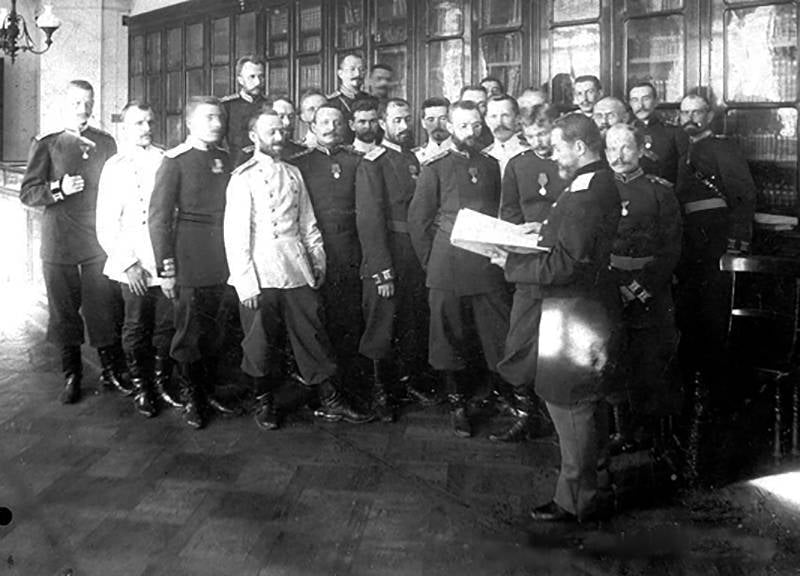
Graduation Academy GSH. 1899 year. Headquarters captain Snesarev - fourth from left
He chose the distant Turkestan military district as his place of service. At that time, the interests of the three great powers — Russia, China and the United Kingdom — clashed in Central Asia and the Pamirs. All of them had mutual claims and unresolved territorial problems to the end. Serious intelligence and military diplomatic functions were assigned to the officers serving here. In the summer of 1899, Captain Snesarev was sent to India. During the trip, he visited many regions and cities of the British colony, visited Kashmir, Shimla, Gilgit, Lahore, was granted an audience with the vice-king of the country Lord Curzon and other high-ranking officials of the British colonial administration. Officially, Russian officers traveled for diplomatic purposes, but in reality the task was to study and evaluate the area as a possible future theater of military operations. Andrei Yevgenyevich was connected to the mission as a polyglot specialist - by that time, Snesarev, who was fascinated by linguistics, was fluent in English, Arabic, Turkish, Persian, and Hindustani. Later, the number of languages in his asset reached fourteen.
During his time in India, Andrei Evgenievich sincerely fell in love with the country and its inhabitants. The trip allowed the captain to collect a huge amount of material, supplemented by a three-month study of the history of the area in the British Museum during a Snesarev business trip to England in 1901. He prepared a huge reserve for subsequent works devoted to India and Afghanistan and published many years later. By the way, Snesarev considered India the main “source” of British power and offered three options for invading the country. Also, Andrei Evgenievich predicted the inevitable fall of the colonial empire, holding on to the exploitation of dependent peoples.
In subsequent years, the service at the headquarters of TurkVO Snesarev performed a great job of describing the lands that were part of this huge district. Simultaneously with the service, he also wrote several scientific articles and compiled a number of information collections for the headquarters, taught mathematics in the cadet corps, was engaged in collecting books, performed as a soloist at concerts and musical evenings in Tashkent, was an active worker of the Russian Imperial Geographical Society. His reports in society were notable for their mastery of presentation and thorough scientific preparation.
From the beginning of July 1902 to the end of October 1903, Andrei Evgenievich commanded the Pamir detachment. Here, the captain had to solve both military and political tasks to ensure stability in the Pamirs - an important strategic issue for Russia. It is worth recalling that at that time there were no good roads in those places, and cars and helicopters could not bring travelers to secluded villages. Multi-day crossings along practically inaccessible paths, lack of potable water - these were the conditions of the hike. However, the captain not only coped brilliantly with the assignment, but also carried out a number of scientific works devoted to the study of Central Asia. In 1903, his first significant works were published - the two-volume book “The North Indian Theater” and the military-geographical description called “The Pamirs”. It should be noted that intelligence and analytical activities during travels to India and the Pamirs, as well as service in the district headquarters, greatly contributed to the study of the Snesarev war from the applied and fundamental points of view. He was well versed in matters of the influence of military history on the historical destinies of the peoples of the East, the organization and transformation of the geopolitical structures of Asia. In particular, in one of his works, Snesarev spoke about Afghanistan: “If this country can be captured, it is extremely difficult to keep, it will take so many resources to establish order that the country will never return these expenses. Political calculations may lead Afghanistan to any side, but feelings will remain equally hostile to any European state. ” This conclusion was made more than seventy years before the entry of Soviet troops into the country.
In 1904, Andrei Evgenievich married Evgenia Zaitseva, the daughter of Colonel Vasily Zaitsev, who was the head of the Osh city military administration. He was an extremely authoritative person, an old soldier, adjutant of Mikhail Skobelev in one of the trips to Central Asia to Russia, the author of several popular books, including the famous "Guide for battalion and brigade adjutants", which stood 15 editions. Snesarev's rivals in the battle for the hand and heart of Evgenia Zaitseva were the famous Swedish geographer and writer Sven Hedin and the Russian traveler and botanist Boris Fedchenko. However, in the end, the young beauty chose a courageous and talented officer. The marriage, concluded on mutual love, turned out to be very successful - in family life Evgenia Vasilyevna and Andrei Evgenievich were happy people.
At the end of October, 1904 Snesarev was transferred to St. Petersburg to serve as head of the headquarters, and in early December he was promoted to lieutenant colonel. The newlyweds settled in the house under the number 48, located on Galernaya Street. 25 September 1905 in their family was born the firstborn boy Eugene. Andrei Evgenievich successfully combined the joy of fatherhood with active scientific and responsible service activities. In those years, he was engaged in strategic intelligence affairs in the regions of Central and South Asia. At the same time, Snesarev wrote a lot, read lectures at military schools, actively spoke in the Geographical Society, the Society of Oriental Studies, the Society of Military Knowledge Zealots, participated in the publication of the newspaper Golos Pravda, published in Novoye Vremya and a number of other St. Petersburg publications. It should be noted that in the period of his life in St. Petersburg, Snesarev became a recognized orientalist. He was often invited to international conferences, for example, at 1908 in Copenhagen at the Fifteenth International Congress of Orientalists, he made two reports - “Awakening Nationalism in Asia” and “Customs and Religions of the Highlanders of the Western Pamirs”, which caused a great resonance among politicians and specialists.
In 1907, Andrei Evgenievich publicly spoke of the inexpediency of the conclusion of an allied treaty with the British Empire by the Russian Empire. In his opinion, it was a matter of preparing for the next European war, in which Britain, together with France, was drawing Russia in. As a military strategist and geopolitician, Snesarev stated that in the twentieth century our country needed a military-political strategy of a neutral power, and not a participant in one of the European military-political blocs that formed, preparing a war unprecedented in scale. But the ruling circles of the Russian Empire were not able to accept such a thought. And Snesarev was removed from strategic intelligence affairs by nomination. In September, 1910 Andrei Evgenievich, already a colonel, was appointed chief of staff of the second Cossack Consolidated Division, stationed in the city of Kamyanets-Podilsky. And in 1913, the emperor appointed Snesarev Chairman of the Russian side of the International Commission for the Control of the Russian-Austrian border.
In the Combined Division, Cossacks served a number of troops - the Don, Terek, Kuban, Urals. To the new duty station, the colonel arrived with two children — the second son, who was born in 1908, was given the name Kirill. In 1911, the Snesarevs had a daughter, Yevgeny. With the post of chief of the Cossack division, Andrei Evgenievich, himself coming from the Cossack environment, coped impeccably. And in the summer of 1914, the First World War began. In August, the Combined Division conducted active offensive battles. Twice during this time Snesarev distinguished himself - 10 of August near the city of Buchach (he was awarded the Order of Vladimir of the third degree) and 12 of August near Monastyryska (awarded by St. George weapons). Being a man of science, Andrei Evgenievich at the same time perfectly proved himself on the battlefield. In a combat situation, the colonel behaved bravely, revealing a reasonable risk and high demands, especially taking care of the health and life of the officers and soldiers under him, who called him, by the way, “commander with angelic heart”. The Russian units under his leadership fought on the German front especially firmly and courageously, while Snesarev himself always acted in accordance with the principle expressed by him in one of his works: “Risk yourself like the others. And at least occasionally get into the situation in which they live, which you command. "
In the fall of 1914, Snesarev was appointed commander of the Simferopol 133 Infantry Regiment. For the battles carried out by his regiment at the end of 1914, Snesarev was awarded the Order of St George of the Fourth Degree. The order stated: “All the time I was under enemy fire, putting my life in danger and inspiring the lower ranks .... Dashing offensive knocked the enemy out of the trenches. " It is curious that the papers did not say about the feat of the infantry regiment itself, which caused condemnation of Andrei Evgenievich. He wrote in the field diary: “Forgotten: restoring the blockade of Przemysl; restoration of the line abandoned by the ninth cavalry division and two infantry regiments of the 81 division; attack of the whole division by the regiment ... ”.
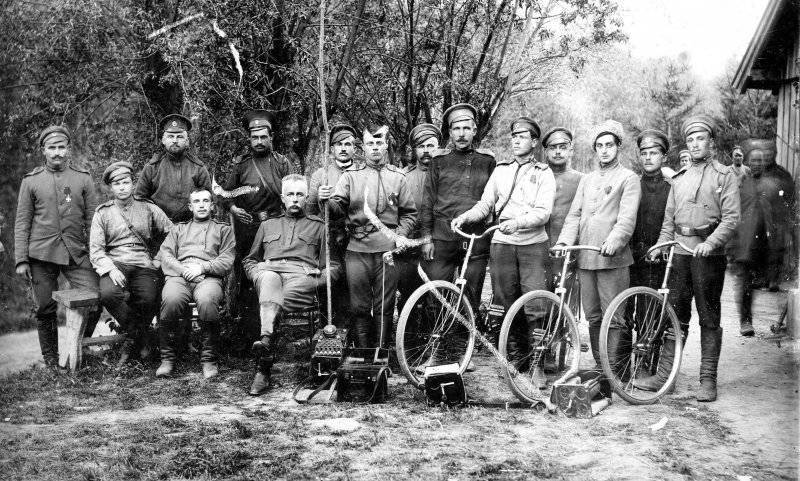
The commander of the 133 Infantry. regiment A.E. Snesarev with his communication team. The commander of the communication team is Lieutenant Fokin. May 1915 of the year
In August, 1915 Andrei Evgenievich was promoted to major general and was appointed commander of the first brigade of the 34 Infantry Division. And since February 1916, he headed the headquarters of the 12 Infantry Division and in the summer of the same year took part in the Lutsk (Brusilovsky) breakthrough. On the battlefields of Andrei Evgenievich, numerous battle certifications given to him during the war years speak. Here is just one of them from the commander of the twelfth infantry division, Mikhail Khanzhin (spring 1916): “Major General Snesarev has a broad education (general and military), is fluent in German and French, understands military affairs, has great combat experience, having passed combat the head of the brigade and infantry regiment, the chief of staff of the infantry and cavalry divisions. With a rare conscientious attitude to the service. Courageous and brave, in any situation retains complete calm and composure. Always alert, health lasting. It has the best influence on subordinates, encouraging and supporting them in a confident, calm and cheerful mood. Treats them carefully, gently, thoughtfully and cordially. ... Decent nomination to the place of the division commander and to the places on the General Staff - quartermaster general of the army and the head of the corps "out of turn".
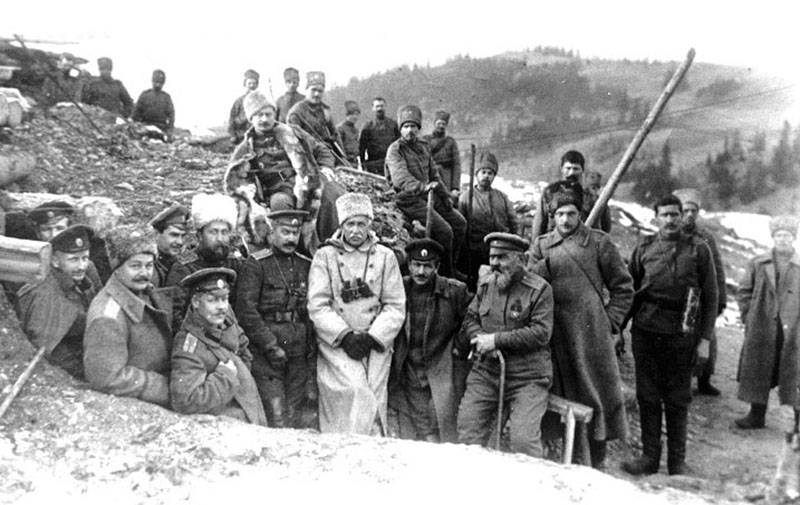
In September, 1916 Snesareva was assigned to temporarily perform the duties of commander of the 64 Infantry Division, located in Moldova. On the first day he led the battle, which resulted in three heights captured by his division. More than 600 of enemy soldiers and officers were taken prisoner, and Snesarev was awarded the Order of St. George of the third degree. Despite the excellent service and combat certification, the people who served under the general and saw him in combat, found that the nomination of Snesarev in the service does not match the talents of this person as an organizer of hostilities. Considering that their commander was not honored, subordinate officers and lower ranks often presented home-made awards to the general. For example, it is known that once soldiers gave Andrei Evgenievich an eight-inch projectile adorned with knives and twined with barbed wire, on which a clock was fixed and a sign with the inscription: “To our dashing fighting eagle, General Snesarev”. On the same day, Andrei Evgenievich, who always valued such honors, wrote down: “There is Georgy from above, and this is my Georgy from below.”
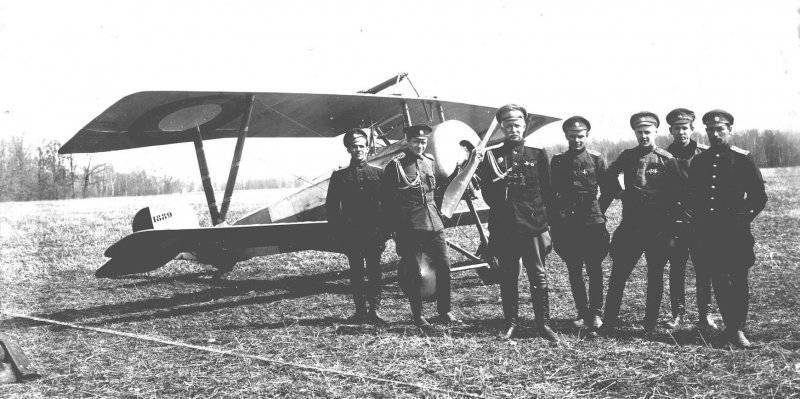
The commander of the 159 Infantry Division, Major General A.Ye. Snesarev among pilots 7-th fighter squadron. 30 March 1917 g
In the difficult days of the February revolution, Snesarev thought a lot and made a Solomonic decision: “The events pass large, and people bend under their weight. I and those like me, three years old, walking before the face of Death, are not afraid of their people and deeds, but only of God and his Court. Our goal is to win, and what is being done in the rear, what the rear people are looking for, we will not do it - there is no time. If they are right, we will be glad first, because, dying for our Motherland, we love her no less than others ... ” After that, Snesarev focused on the army. In 1917, he was transferred from one position to another several times: in February, he became the chief of staff of the twelfth army corps, and in April, already the chief of the 159 th infantry division. Also this year he was promoted to lieutenant general. The situation in the 159 division was terrifying - there was almost no food supply, the regiments sabotaged orders. Experienced generals wondered: “Will I be able to turn a part into a victorious channel?” But he decided to take a chance and began with individual work, having conducted personal conversations with almost every soldier. For several months he managed to withdraw the division from the candidates for disbandment into the number of percussions. In September, 1917 was again transferred to him - this time to the position of commander of the ninth army corps. He still continued to enjoy indisputable prestige among the personnel, but the general did not have to fight for a long time - the October Revolution broke out.
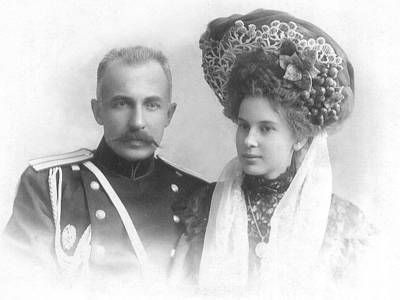 The collapse of the army and the country Andrei Evgenievich experienced as a personal tragedy. As an expert in political history, he wrote 6 to 1917 in May for his wife: “... The country will go to the left, to those who promise even more ... And after that there is anarchy, mobilization of sober peasant masses, a reverent search for the best Russian people and with it peace and order. I am practically convinced that this will be the case, that my poor country will have to go through this long-suffering Golgotha again. ” After the royal army finally collapsed at the end of 1917, Snesarev received leave and went to his native Voronezh province. There at that time was his family, supplemented by two twins, George and Alexander. It is curious that the old friend of the Snesarev couple, the famous general Lavr Kornilov, became the godfather of the boys. In the Voronezh province, in an atmosphere of revolutionary turmoil, Andrei Evgenievich - a combat general who participated personally in 76 (!) Battles, not counting many small combat episodes - painfully solved the problem of choosing a further fate. However, he was sure of one thing - it would be connected with the fate of Russia. This confirms his attitude to the treatment of his younger brother Paul, the famous doctor. 14 March 1918 Snesarev wrote about this test father Vasily Zaitsev: “My brother is prone to somewhere to flee - to England or to America - and asks me for a route through Afghanistan. Although such an idea can only be generated by insanity, however, there is probably a lot in the setting that pushes on insane steps. In response, I will advise composure - you can leave your homeland, there will be closer paths for this than the Afghan one, but with whom will the country remain, and what will happen to it? ” Thus, the final choice of Snesarev was such - in any situation to serve his country. And when in 1918 with the beginning of the Kaiser troops, on behalf of the Soviet authorities, he was offered to join the Red Army, he accepted this offer.
The collapse of the army and the country Andrei Evgenievich experienced as a personal tragedy. As an expert in political history, he wrote 6 to 1917 in May for his wife: “... The country will go to the left, to those who promise even more ... And after that there is anarchy, mobilization of sober peasant masses, a reverent search for the best Russian people and with it peace and order. I am practically convinced that this will be the case, that my poor country will have to go through this long-suffering Golgotha again. ” After the royal army finally collapsed at the end of 1917, Snesarev received leave and went to his native Voronezh province. There at that time was his family, supplemented by two twins, George and Alexander. It is curious that the old friend of the Snesarev couple, the famous general Lavr Kornilov, became the godfather of the boys. In the Voronezh province, in an atmosphere of revolutionary turmoil, Andrei Evgenievich - a combat general who participated personally in 76 (!) Battles, not counting many small combat episodes - painfully solved the problem of choosing a further fate. However, he was sure of one thing - it would be connected with the fate of Russia. This confirms his attitude to the treatment of his younger brother Paul, the famous doctor. 14 March 1918 Snesarev wrote about this test father Vasily Zaitsev: “My brother is prone to somewhere to flee - to England or to America - and asks me for a route through Afghanistan. Although such an idea can only be generated by insanity, however, there is probably a lot in the setting that pushes on insane steps. In response, I will advise composure - you can leave your homeland, there will be closer paths for this than the Afghan one, but with whom will the country remain, and what will happen to it? ” Thus, the final choice of Snesarev was such - in any situation to serve his country. And when in 1918 with the beginning of the Kaiser troops, on behalf of the Soviet authorities, he was offered to join the Red Army, he accepted this offer.Known in the country and beyond its borders, a combat general, geopolitician and orientalist was appointed to replace the military leader of the North Caucasus Military District. The defense of Tsaritsyn is perhaps the most important stage of the Civil War. Arriving at a new place, Snesarev first of all personally visited all the units scattered over the territory over 600 kilometers. In just two months, he came to organize on the outskirts of the city a solid defense, which the enemy twice failed to break through. However, despite the military successes, Andrei Evgenievich failed to find a common language with the new commanding personnel. In Tsaritsyn, Snesarev had a sharp clash with Clement Voroshilov regarding the fundamental issues of civil war. Some views of the general of the tsarist army, in particular about finding ways to reduce fraternal bloodshed, gave reason for Snesarev to be suspicious of traitorous intentions and moods. In addition, such people were found in his staff. A series of harsh accusations followed, followed by the arrest of Andrei Evgenievich, as well as the entire headquarters. After consideration of the case, the Moscow commission swept away all Snesarev's accusations of treason, and the general himself was instructed to head the western section of the Veil, a kind of front between German troops and a weakly protected area from the enemy’s attack. Some time later, the general was transferred to the post of commander of the Belarusian-Lithuanian army, soon transformed into the sixteenth army with headquarters in the city of Smolensk.
In the middle of the summer, 1919 was offered to Andrei Evgenievich to take the lead of the Academy of the General Staff of the Red Army, the organization of which began at the end of 1918. It was an extremely successful appointment for the future of the Academy - few of the people living at that time knew the war so well and thought so deeply about it as a social phenomenon that drastically changes and decides the fate of peoples. In August, 1919 commander Snesarev arrived in the capital of Russia with a huge baggage of deep thoughts and impressions of the civil and world wars. The content of the most famous work, The Philosophy of War, was already emerging in his head. Having taken the position of the head of a military school, Snesarev sent the few remaining military scientists in the country an offer to join the Academy as teachers. He wrote: “The social system is changing, the power is changing, but the Motherland remains, and with any authority it needs military service.” It was a pleasure to work with Snesarev, a war hero and a prominent scientist, a tactful and highly cultured man. His invitation was accepted by many, and a team of highly qualified employees quickly formed in the young Academy.
The closest comrade-in-arms and comrade of Andrei Evgenievich at that time was Major General Alexander Andreyevich Svechin, who had already become one of the most popular military writers of Russia before World War II. He was appointed to the Academy at the end of 1918. The creative friendship between Svechin and Snesarev brought great benefits to Russian military thought. By character, they were very different people, but both were talented and highly gifted. And both were seriously engaged in military strategy. Snesarev was more fundamental in conclusions and judgments; Svechin was more prolific in publishing. By the way, Andrei Evgenievich, never pursued success and was in no hurry to publish his works. Nevertheless, his small reviews and articles devoted to the issues of strategy, military doctrine, analysis of the theories of foreign military specialists are more precious than some multi-volume works. For Snesarev, strategy has always been not an abstract science, but a style of thinking, specifically a personified activity. Researchers at the works of Andrei Evgenievich point out that the scientist predicted all the major geopolitical conflicts of the twentieth century and the beginning of this century, described the prototype of the concept of current air-land operations, perhaps the first to analyze the war as a social phenomenon and explore its underlying causes. In his works, he presented an algorithm for the behavior of the commander on the battlefield, developed the provisions of military education.
The Academy of the General Staff of the Red Army Andrei Evgenievich headed only two years. On his initiative, an Experimental Psychological Laboratory was established in the educational institution, and the Eastern Branch was organized to train military specialists in Eastern states. Snesarev himself worked in the Military Statistics Department, being, in essence, his supervisor. At the same time, he participated in the work of the commission to analyze the experience of the First World War, in the work of the Supreme Military Editorial Board. In 1921, the Academy of the General Staff was renamed the Red Army Military Academy. This was followed by a significant change in training programs and the training of military personnel. Mikhail Tukhachevsky was appointed the head of the institution, and Andrei Evgenyevich was left as a professor of the Academy and the head of the Eastern Branch he created.
Changes in official position did not affect the creative activity of Snesarev. His hard work in those years was amazing. He made sure that the Soviet military thought did not lag behind the foreign one, paying much attention to publications on military topics and helping to ensure that everything important and valuable was published in a timely manner, becoming accessible to Russian military specialists. Not a single serious military book published in our country and abroad passed by Andrei Evgenievich. In addition to working at the Military Academy, Snesarev from 1924 was a professor and senior director of the Zhukovsky Military Air Academy, and with 1927 he was a professor at the Military-Political Academy. He took an active part in the formation of the Institute of Oriental Studies, and since the fall of 1927 was appointed its military leader. In addition, he gave lectures at the Oriental Courses and the Courts of Military Prosecutors at the Land Survey Institute, not to mention public speaking on various topics. One of the students of the Institute of Oriental Studies wrote about Snesarev: “... Andrei Evgenievich did not have a car. He usually reached the institute on foot. In his overcoat, with a soldier's hood tied in the old uniform, he walked briskly along the sidewalks, maintaining a military bearing. I do not remember that he ever was late for the beginning of the lesson or missed his lecture. ... In anticipation of the call, he was always surrounded by students. It was possible to contact him with any question. Andrey Yevgenyevich was interested in our life, willingly joked. With gallant Snesarev loved in English, German or French to talk to teachers of Western languages. Andrei Evgenievich was fluent in foreign languages and spoke on them as wittyly as in Russian. ... As professors, we loved and respected him not only for his rich, interesting lectures. Despite his demands, he acted on us stimulatingly and encouragingly with his sensitive attitude, attention to our attempts to utter sometimes immature, but independent thoughts. His criticism was not imperative, helped to develop and deepen our ideas, without killing them. With great respect for him, we did not feel the oppression of his authority and erudition. "
Over the years of work at the Academy, Andrei Evgenievich wrote a number of outstanding works that have not lost their relevance even now. Among them are “The Philosophy of War”, “The Life and Works of Clausewitz”, “Afghanistan”, “Introduction to Military Geography”. They also planned to create a capital research on the theme “India is a country and a people”. He managed to complete two books on it - the first, “Physical India”, was published in 1926, the second, “Ethnographic India”, in 1929. The next two, “Military-Political India” and “Economic India”, remained only in outline. Everything created by the general impressed and surprised contemporaries. It is no coincidence that after the title of Hero of Labor was approved in 1928, Professor Snesarev was among the first to be honored. When in the late twenties there was a question of the choice of members of the Academy of Sciences, the nomination of Andrei Evgenievich was taken as a phenomenon for granted. But in 1930, an eminent scientist was falsely accused of counter-revolutionary activities. An arrest followed, and during the investigation, Snesarev visited both Butyrka and Lubyanka. He was tried in the case of Vesna and in the case of the Russian National Union. On both Andrei Evgenievich was sentenced to death. However, by personal decree of Joseph Stalin, the final verdict was replaced by ten years in the camps.
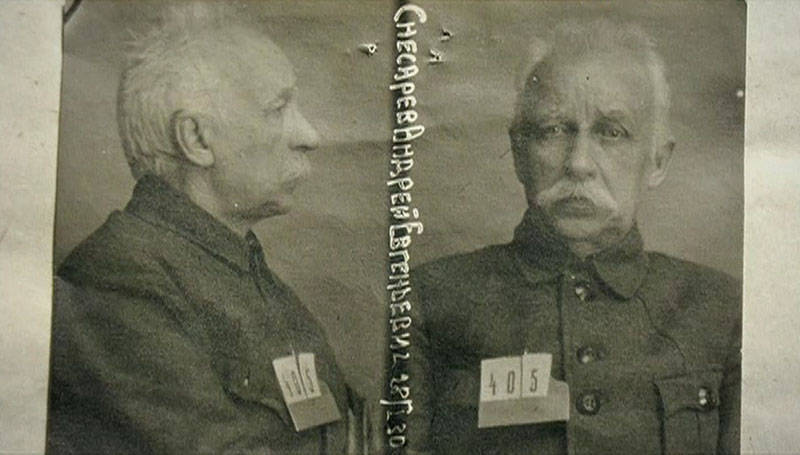
Years on the camp "front line" dragged on: first the Svir camps, then the Solovki. It was a terrible time, illuminating the rare meetings with his wife and children. However, the events were not able to break the spirit and the will of Andrei Evgenievich. While in camps, he met with various interesting people, in particular, with a prominent cultural figure, philosopher Alexei Losev. It is known that Snesarev never complained about his fate and bravely pulled the strap of camp life. His only desire was to bring great benefit to his country. In this regard, Andrei Evgenievich knocked himself permission to continue to engage in scientific work. However, the physical forces of the scientist could not withstand such stress, in 1933, Snesarev had his first stroke. Half-paralyzed, he was held for a long time at the local infirmary, then transported to Leningrad and, after long suffering, he was allowed to be taken away by his relatives, released on health grounds for parole (September 1934). Then followed three years of ineffective treatment, second and third strokes. Andrei Snesarev died in a Moscow hospital 4 December 1937. His fair name was restored only in 1958 year.
According to the materials of the sites http://ae-snesarev.ru/ and http://podvig.36on.ru
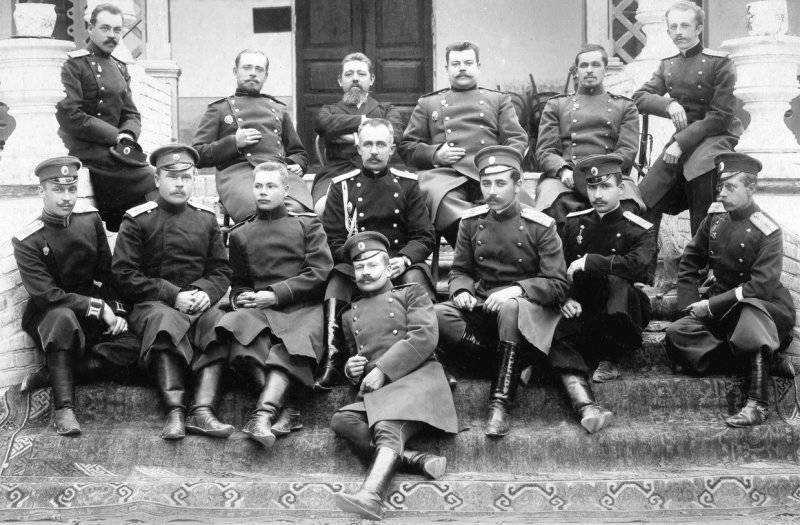
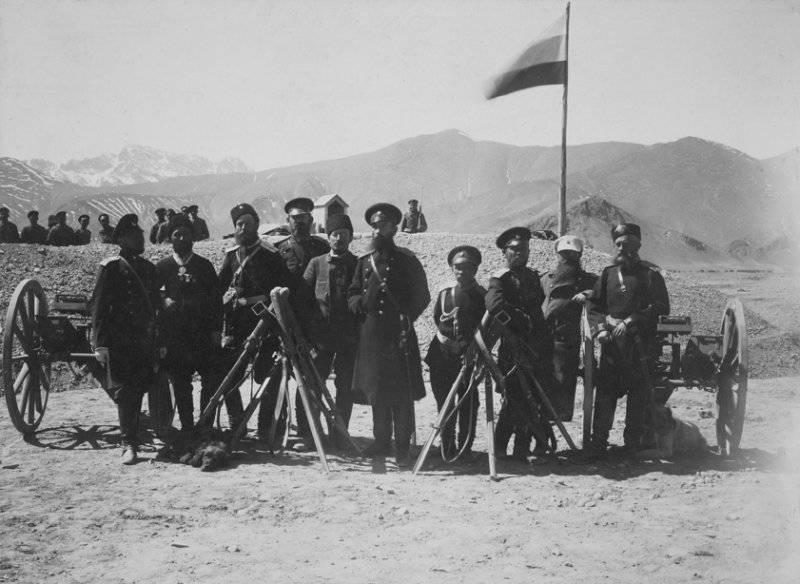
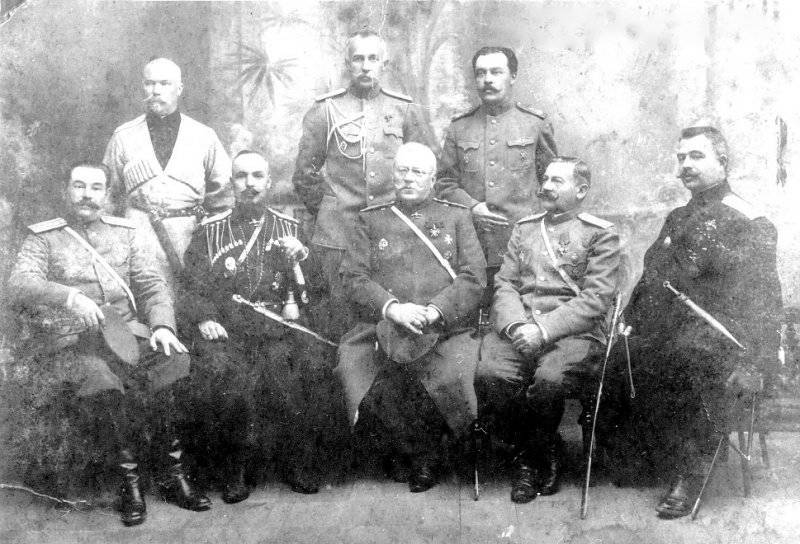
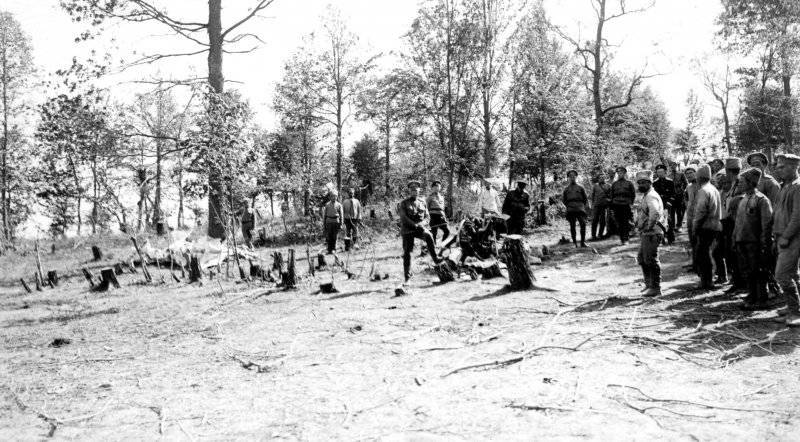
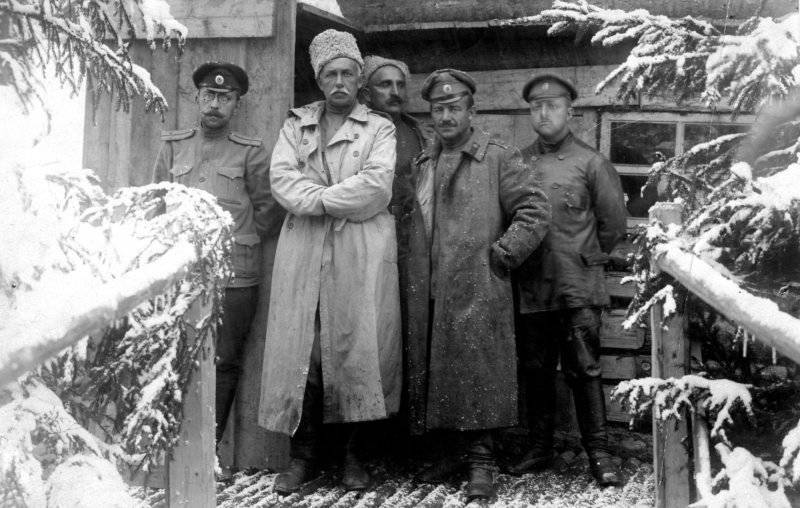
Information